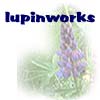English Quarterly
Making Connections:
Making Sense
Alyson Hillier
"Look, it's right here in the table", one student was
saying to her friend as she perused the back page of a chemistry
text.
"But that isn't what I was thinking of," responded her
friend as she directed her to the top right hand corner. "If
you read the last row you'll find."
I glanced over the first student's shoulder and realized she was
reading the periodic table in her chemistry textbook. It had been
twenty years since I had studied chemistry or seen this particular
table. One thing was certain, it hadn't made much sense then and
now it made no sense at all. The meaning for me came from listening
to the girls talk.
Making sense was what this was all about. Oh, I could recognize
the numbers and the letters but since I didn't understand the context,
the print was without meaning for me.
This situation reminded me of Frank Smith's comment in Awakening
to Literacy,
I interpret literacy as the ability to make full sense and productive
use of the opportunities of written language in the particular
culture in which one lives (p. 143).
It was clear I was unable to use my knowledge of reading to make
full sense or productive use of the print in the chemistry class
"culture" because I remembered no chemistry.
This particular incident raised some critical questions for me
about my assumptions regarding print in my classroom, the school
and the community at large. Can my students use the print in my
classroom to make sense of the classroom culture? Can they make
productive use of the written language around them? Do they feel
that same frustration that I experienced when I was confronted with
unfamiliar print?
This led me to thinking about my own classroom
It was activity time in my four year old class, there was a sense
of urgency as children hurried about the room, armed with their
name tags, selecting a centre of play for the morning.
Cordelle stared at the neatly printed name tags hanging on the
choosing board. He had always been able to recognize his name simply
by finding the letter "C" at the beginning but Christopher
had not yet picked up his card, so there were two cards with the
letter "C" at the beginning. Cordelle had never really
had to think about the other letters; he knew he needed to know
more to solve this problem.
Finally, when he could wait no longer, Cordelle rushed up to me.
"I can't find my card," he reported.
In the midst of the rush, I returned to the board with him, looked
over the names still hanging and quickly recognized his.
"Here it is," I said as I reached forward and removed
the card from its hook.
"Thanks," said Cordelle as he flashed a grateful smile.
His immediate problem had been solved!
As a teacher I had relieved his frustration but had I given him
the chance to see something in the print which he had not seen before?
Did I help him see the print in a way that would have made it meaningful
and productive for him the next time he was in a similar situation?
It seemed that Cordelle's problem was not very different from mine
in the chemistry class. We both solved our problem by letting someone,
who had more experience with some particular print, do the thinking.
Fortunately, I know this situation will arise again; the next time
I will be prepared to bring Cordelle closer to the print by helping
him locate his name elsewhere in the room; his table spot, coat
hook, etc. and help him to become more aware of the letters as visual
clues. Because he needs to know more about the print in his name,
he will no doubt be able to make sense of it.
Recognizing these moments and seizing upon them are critical to
the ongoing literacy development of my students. Since I can't be
there for them all the time, I need to help them develop strategies
which will serve them well not only in the classroom but in the
community in which they live, too.
Goelman, H., A. Oberg & F. Smith (1984) Awakening to Literacy.
Portsmouth NH: Heinemann Educational Books.
Alyson Hillier is with the Halifax Regional School Board, Halifax,
Nova Scotia.
[ EQ Index ]
|

